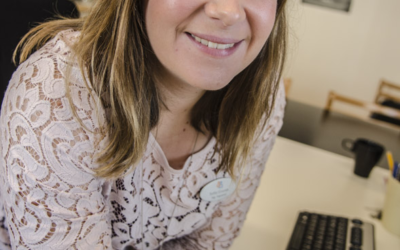Perhaps your kids are game changers!

In October 2019 the organisation Made by Dyslexia arranged a World summit in England. It was held at the Science Museum in London, an appropriate place given the theme of the conference: Game changers. There they could point at many of the scientists represented at the museum, real game changers, who also were dyslectics, like for example Edison and Bell.
Many of the speakers at the summit were also dyslectics, all successful in their respective fields. There were businessmen, media people, executives from the administration and many more.
The keynote speaker, the Secretary of state for Health and Social Care, Matt Hancock, has recently “come out” as a dyslectic. He admitted that he had hesitated for a long time, but – unlike what he had feared – he had received much appreciation and respect. It turned out that another two members of the government also were dyslectic, but that one of them did not want to go public about it. “He or she” said Hancock, who didn’t want to give away the secret “is afraid that it may have negative consequences.” He noted that there is still a way to go before we proudly put “Dyslectic” on our CV:s.
He concluded that he is “Made by Dyslexia” with all the challenges and advantages it involves, and that this fact – together with a well functioning spell check – has made him what he is today. In his present role as a member of the government, he also wanted to remind of the other perhaps more commonly known of side of dyslexia: children and young persons with dyslexia, but without help and support, who end up in an hopeless spiral of failures and feelings of hopelessness. If they do not get the help they need at an early stage they risk turning their creativity into destructiveness.
The main focus of the conference was on the positive sides of dyslexia: the ability to think new, to see details at the same time as the broad picture, to be able to simplify, to “look round the corner”, to think logically, but perhaps with a different logic than the current and often combined with an unusual perseverance. All these are qualities that are increasingly sought after in the labour market. The conference can be followed here: https://madebydyslexia.blog/2019/11/08/game-changers-global-summit-2019/
The person who started the organisation Made by Dyslexia is Kate Griggs. She is herself a good example of dyslectic thinking. She thought that given all the advantages with dyslexia and now when we all begin to realise that the challenges of tomorrow need independent minds that are good at problem solving, then more people would reasonably want dyslectic babies. So she fixed a clinic-like room and put a big sign outside: DYSLECTIC SPERM BANK. That gave her good media coverage and the message got through. She has given a Ted Talk about that, were she also tells how lucky she was as a dyslectic kid, to be sent to a school where they had realised the positive sides of dyslexia. The school received children who other schools considered stupid and adjusted the teaching to these children. In her research she has shown how those “stupid” kids have managed well in life and how many of them have become outstanding in areas that require innovative thinking and creativity.
Perhaps your kid is a game changer! This month two parents tell us how life can be when kids have dyslexia. Read about their challenges and see if their Top 3 advices can work also in your family


